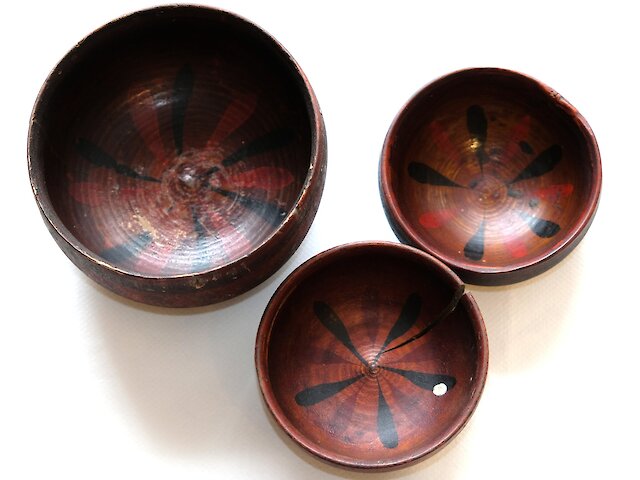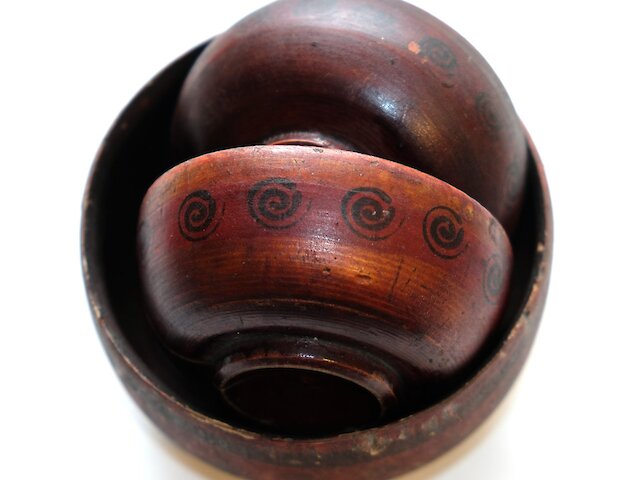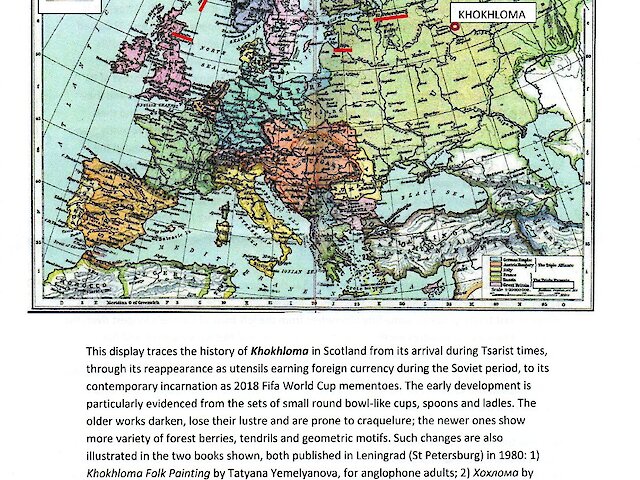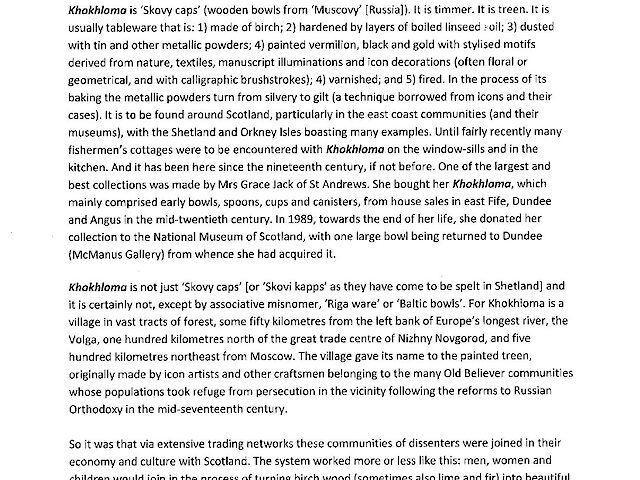- #skovikapps#oldhaa#oldhaamusuem#yell#shetlandmuseumandarchives
- 30 May 2025
Old Haa recently had a very interesting visit by Dr Jeremy Howard, recently retired Deputy Head of Art History at the University of St Andrews, accompanied by Jenny Murray of Shetland Museum and Archives. Find out more in this blog.
Dr Howard is researching and writing a book that focuses on Khokhloma in Scotland. Khokhloma, or Skovi Kapps as they are known in Shetland, are painted wooden bowls (and other wooden kitchen ware) turned from birch trees in a village called Khokhloma, and its surroundings, near the banks of the river Volga in central Russia. There is a very specific technique to creating these beautiful bowls which includes hardening, treating with linseed oil, dusting with metal powders, painting, varnishing and then firing. Men, women and children were involved in the process, selling their wares to agents who sold them on at local fairs before being transported to Archangel, St Petersburg and Riga. It was from these northern cities in the nineteenth century that they were placed in ships carrying flax, timber, tar and hemp to ports in Scotland where they were either traded by sailors with local folk in return for food, drink and perhaps a little money or given away as presents from afar.
The Old Haa has three of these, well-travelled, bowls in two different sizes. Dr Howard dated these examples of Skovi Kapps as between 1860 and 1900. He is very interested in hearing of any other Skovi Kapps in existence. You can send photos or details of your kapps to him via [email protected]
Old Haa were also able to assist Dr Howard with his search for a poem. He was given four lines from a song by Laurence Williamson of Mid Yell. There is a great array of books in their Reading Room one of which was “Laurence Williamson of Mid Yell” by Laurence G Johnson. In the back of this book are poems and songs by Laurence one of which, “Da Sang o da Mongersdal Lass’ contains the line about Skovi kapps that Dr Howard knew. Mongersdal is now mostly spelt as Mongirsdale and is on Fetlar.




